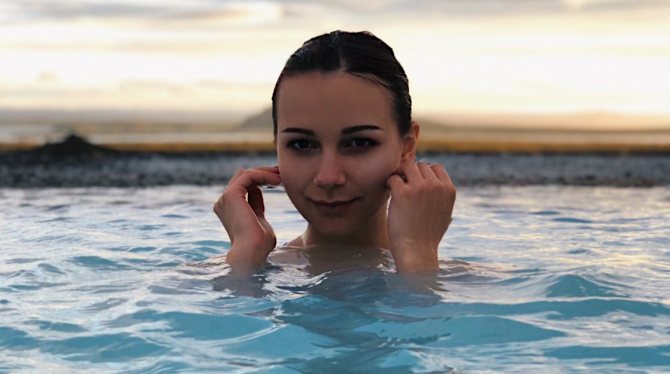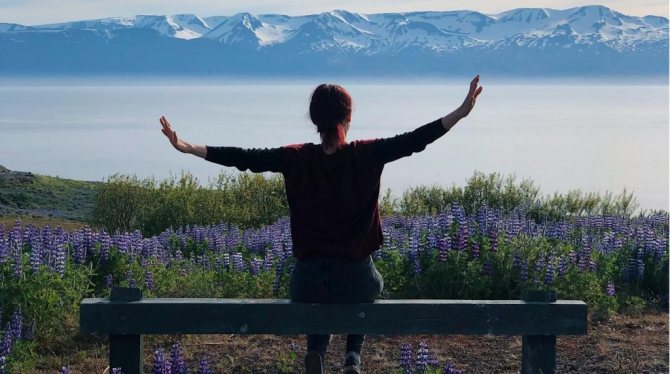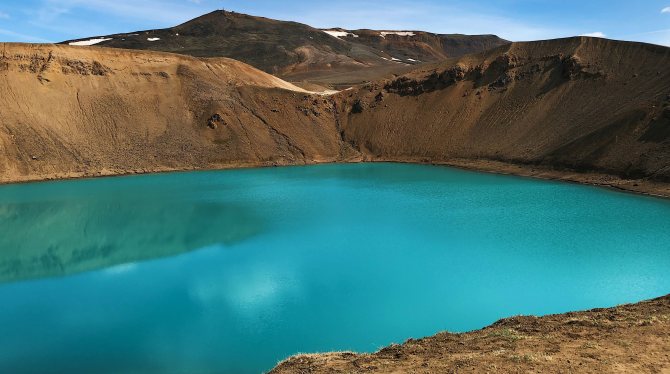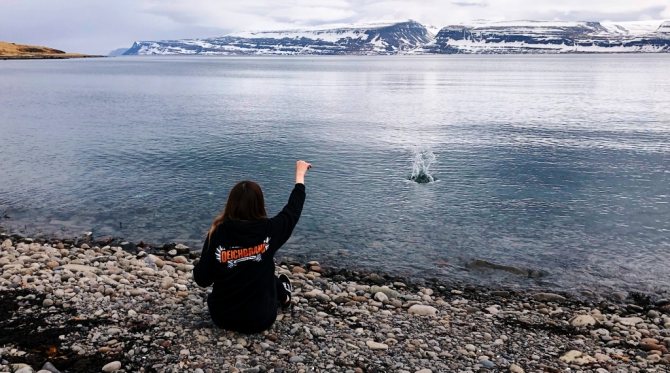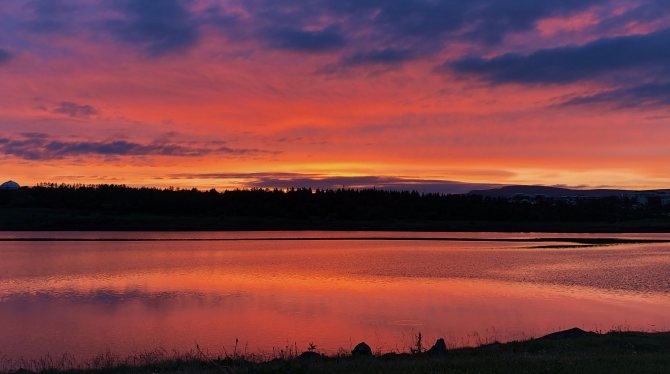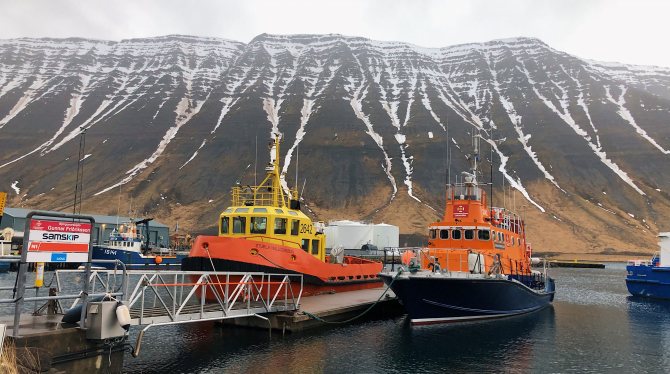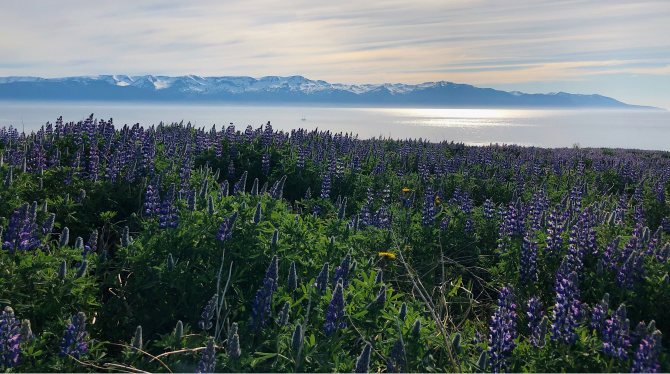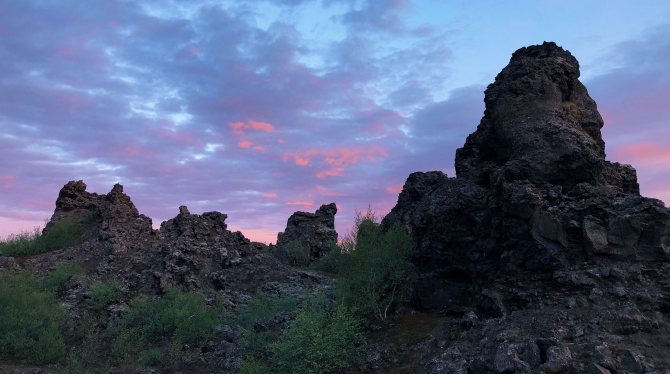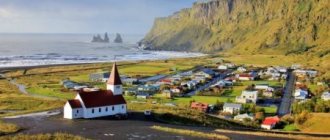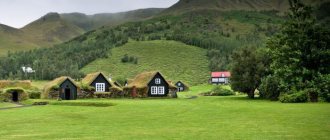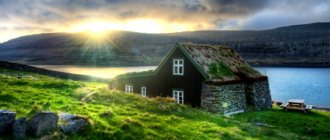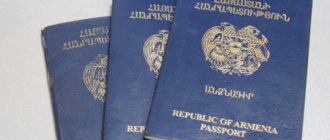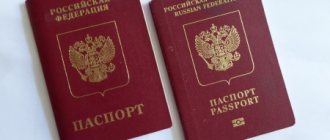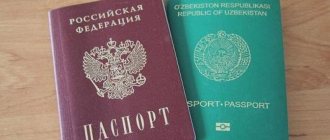Characteristics of Iceland
Where is Iceland on the map of Europe?
Iceland is located in North-West Europe, approximately halfway between Great Britain and Greenland. It would seem that in those harsh regions where Iceland lies, eternal winter reigns, because it is located at the same latitude as the Russian Oymyakon and Anadyr.
But in Iceland the climate is different, much milder. In summer the temperature reaches 20-25 degrees, and in winter it averages around zero. The only thing that causes inconvenience to Icelanders is the frequent change of weather several times a day. In addition, the island is often crossed by cyclones carrying precipitation and strong winds. The Icelanders themselves joke: “If you think the weather is bad, wait half an hour and it will get worse.”
Iceland on the map of Europe
You can view a detailed map of Iceland in Russian here.
What is the name of the capital of Iceland?
The capital of Iceland, Reykjavik, is a small city by our standards. But for little Iceland, this is a real metropolis, the only large city in the country with a population of just over one hundred thousand people. The rest of Icelandic cities are comparable in size to our large towns.
"Reykjavik" is translated from Icelandic as "smoky bay". Reykjavik, like the rest of Iceland, is dotted with natural hot springs that constantly emit clouds of steam. The first residents mistook the steam for smoke, and gave the city that name.
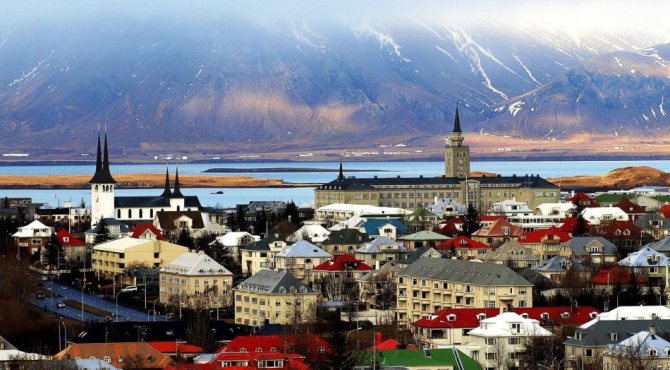
Reykjavik, capital of Iceland
Currency and time of Iceland
Relations with the European Union are complicated here. Iceland is part of the Schengen zone (you can enter here with a short-term Schengen visa), but the country does not intend to become a full member of the European Union.
Euros in Iceland are freely accepted in almost all establishments (exceptions may be small provincial villages or transport fares). However, the official currency of Iceland is the Icelandic krona.

Icelandic kroner is the currency of Iceland.
Exchange rate as of 2021: 1 euro = 133 ISK.
It is better to change currency (euro to kroner) locally in Iceland, since the Icelandic krona is not convertible in other countries, and it is simply not available in our exchange offices. But in general, you will rarely need cash, since payment with bank cards is very common in Iceland (even travel on buses and taxis can be paid through the terminal). ATMs are everywhere.
The time difference between Moscow and Reykjavik is -3 hours: when it is noon in Moscow, it is 9 am in Iceland.

Icelandic money
Iceland: form of government
Iceland is a parliamentary republic. The state is headed by a president who is elected by popular vote every four years. The government is subordinate to the president: the cabinet of ministers, headed by the minister-chairman (in our opinion, the prime minister).
Laws are adopted by parliament, whose members are also elected by vote for a term of 4 years. If necessary, parliament has the right to pass a vote of no confidence in the government, after which the cabinet of ministers must resign.
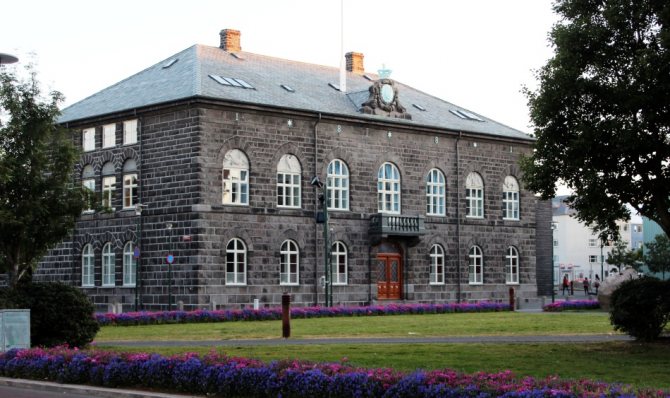
Icelandic Parliament building in Reykjavik
Population of Iceland: peoples, what language do they speak?
Iceland is a rather isolated country. The vast majority of local residents are native Icelanders. The remaining percentage comes from Danes, Norwegians and Swedes. The total population of the country is only about 350 thousand inhabitants, 2/3 of whom live in Reykjavik and its suburbs.
The official language in Iceland is Icelandic. It is also the main language of communication.

Bjork is the most famous performer of songs in the Icelandic language
Principle of legalization
The procedure for obtaining citizenship always takes a long time and requires preparation. The following sequence can be designated:
- Purchasing a visa - Schengen or national is allowed. To do this, you should contact the consulate or embassy. The waiting period will take up to two weeks. A multiple visa is issued for a period of five years;
- Obtaining a residence permit occurs in different ways: through employment, marriage or study. It is better to start dealing with this issue immediately after arriving in the country;
- Registration of permanent residence - at least you need to stay in the state for three years and fulfill the conditions put forward by the country;
- Granting citizenship - for this you need to live in Iceland for seven years and create a solid foundation for your future.
Read also: Migration Department
How to get to Iceland: airports
Iceland is an island and can only be reached by plane or ship. There are no direct flights from Russia and the CIS countries to Iceland. You can fly with a transfer through one of the Scandinavian countries (it is with them that Iceland has the most active air connections).
Keflavik International Airport is located 50 km from Reykjavik and receives flights from Germany, France, the UK and Scandinavia. The airport is small: only one terminal, a modest one-story building. There is a duty-free zone, several restaurants, and free Wi-Fi.
Reykjavik city center can be reached by rental car, taxi or regular bus. The journey takes from half an hour to 45 minutes. See the list of car rental companies in Keflavik here. A list of routes and schedule of regular buses can be found here.
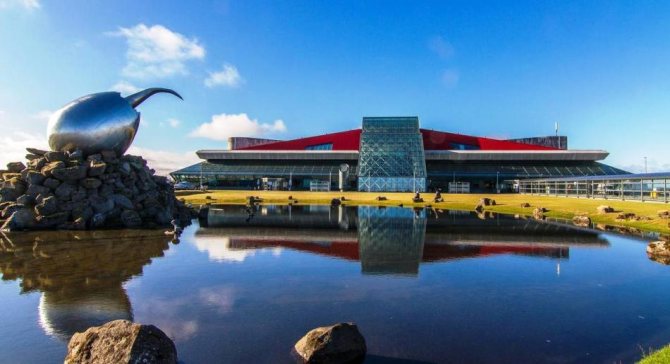
Keflavik is Iceland's only international airport.
How to obtain Icelandic citizenship?
Icelanders are hospitable people, but only with those who do not plan to live here forever. Historically, Icelanders have developed a strong (if guarded) aversion to outsiders for many reasons. The number of immigrants on the island is negligible; each case of granting citizenship is closely examined by local authorities.
Before becoming a full citizen of Iceland, you need to obtain a permanent residence permit and live under it for a certain number of years. But even obtaining a permanent residence permit is not an easy task. For example, unlike many European countries, having a business or purchased real estate in Iceland is not a sufficient basis for granting you citizenship.
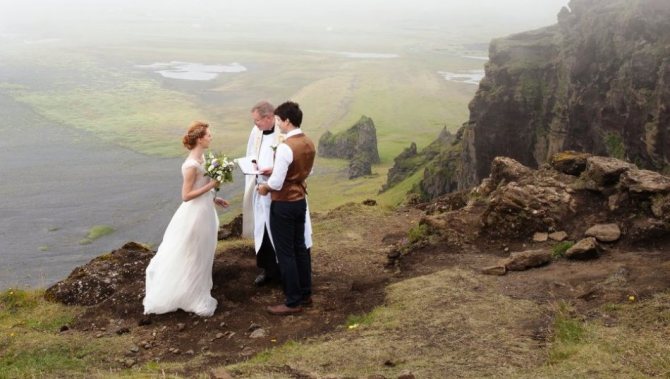
Marrying an Icelandic citizen is one of the ways to obtain citizenship
Icelandic legislation provides for 4 reasons for obtaining a permanent residence permit
Marriage to an Icelandic citizen
Official marriage with a citizen of Iceland (obtaining citizenship is possible after 3 years of residence permit). This method seems simple only at first glance, since Icelanders are extremely reluctant to accept mixed marriages. Prejudice is especially strong among the older generation, and the importance of parental consent to marriage has not yet been canceled.
Contract job
Working under a contract gives the right to obtain a residence permit, after seven years you can obtain citizenship. In Iceland, 70% of the workforce is employed in the service sector, 23% in industry and only 5% in agriculture. As you can see, the chances of finding a job as a laborer here are slim (mostly such vacancies are offered by fishing farms).

A work contract in Iceland gives you the opportunity to move to the country
Foreigners are rarely hired here for contract work. By law, an employer is obliged to first offer a vacancy to Icelanders, then to EU citizens, and only then to other various migrants. Recently, Iceland has been inundated with a large number of job seekers from Eastern European countries, so there are countless people willing to take up the most popular professions here.
To get a permanent work contract for a citizen of Russia or the CIS, you need to be a super-specialist in one of the narrow industries where there is no competition. It is better if you first find an employer and receive an invitation from him, and then go to conquer the country. Finding a job locally “with a bang” is unrealistic.
Website of the Icelandic public employment service: https://www.vinnumalastofnun.is/svmhb/. Job boards in Iceland: www.job.is and www.hhr.is. You can also regularly visit the websites of large Icelandic companies where job advertisements are posted.
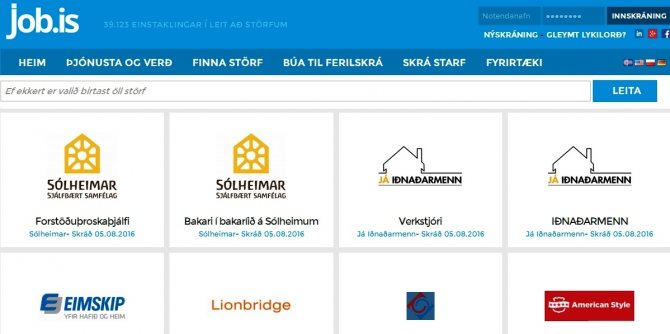
Website for finding a job in Iceland www.job.is
Studying at universities in Iceland
The most reliable way to obtain Icelandic citizenship is to enroll in one of the local universities. Firstly, this automatically gives you the right to a residence permit. Secondly, by the time you graduate, you will already be able to obtain citizenship. Thirdly, most universities in Iceland try to provide their graduates with jobs.
An advantage for you will be that local universities are not in great demand among European residents (there are plenty of their own universities there), so the competition for applicants is not great. Some universities in Iceland teach in English (universities in Reykjavik and Akureyri).
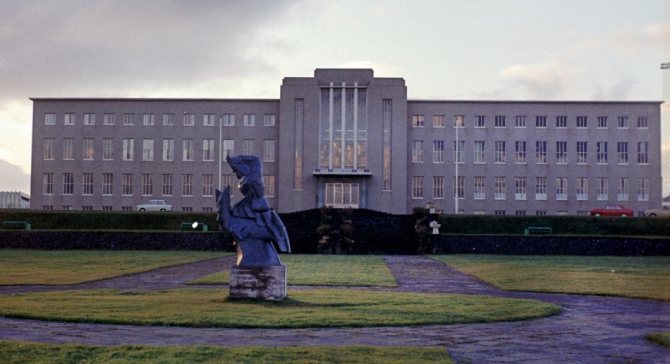
University in Reykjavik, Iceland
Studying at a public university costs 200-400 euros per semester. There are no scholarships, but students have a large social package that provides a flexible system of discounts. Education in private institutions costs much more - several thousand euros per semester.
The application for admission can be submitted remotely: the procedure and package of documents are not too different from Russian ones, but all documents must be provided translated into English or Icelandic and certified with an apostille. More detailed information should be found on the official website of the university you are going to enroll in.
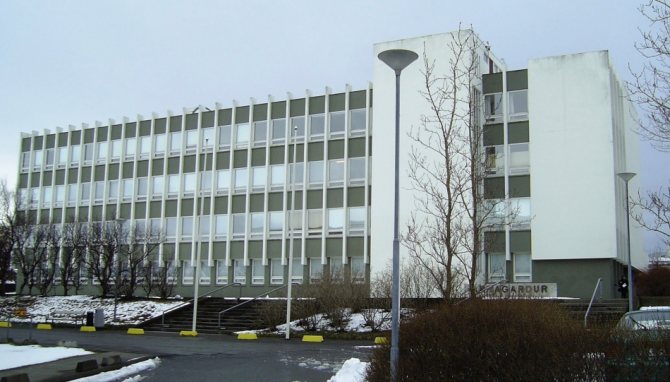
One of the buildings of the university campus in Iceland
Refugee status
The refusal rate for refugee status in Iceland is extremely low. But don’t delude yourself: this is due to the fact that the number of people wishing to receive such status is negligible. The main candidates (from disadvantaged countries) consider the local climate too cold. The second reason is that refugee status will not automatically allow you to bring your entire family with you to Iceland.
And most importantly: refugee status does not give the right to work. You will receive social benefits that will allow you to make ends meet, but no more. You are expected to leave Iceland and return to your home country as soon as the political situation in your country has stabilized. Therefore, obtaining citizenship based on refugee status will be problematic.
To obtain Icelandic citizenship, you must pass a state exam on knowledge of the Icelandic language (basic level). Dual citizenship is allowed, so there is no need to cancel your national passport.
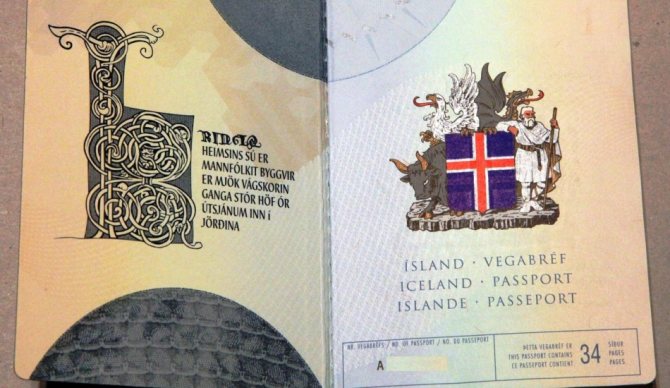
Icelandic Citizen Passport
“Moving to Iceland is the most amazing thing I have done in my life”: the story of a Russian woman
Iceland is a country of incredibly beautiful nature, cosmic landscapes and no less cosmic prices. We decided to ask Russian Ksenia Klishina, who moved there and has already managed to explore this amazing country from the inside, about what it looks like through the eyes of a local resident. Why Icelanders always complain about how much money they need to feel comfortable in one of the most expensive places on the planet, and who is contraindicated in moving to Iceland - read about all this in our new interview.
Iceland is a country of incredibly beautiful nature, cosmic landscapes and no less cosmic prices. Tourists who come there for a week or two can see all this. We decided to ask a Russian woman who moved there and has already managed to explore the amazing country from the inside about what Iceland looks like through the eyes of a local resident.
Why locals complain all the time about how much money it takes to feel comfortable in one of the most expensive places on the planet, and who is contraindicated in moving to Iceland - read about all this in our new interview.
tell me something about yourself
My name is Ksenia, I'm 23 years old. I was born in Tambov, but at the age of 12 my family and I moved to Moscow. My parents wanted to give me a good education, and in the end I studied at MGIMO at the Faculty of International Economic Relations.
How did you end up in Iceland? Was it a conscious decision or did it just happen that way?
While studying at MGIMO, I could take a third language to study and I wanted to choose something unusual. So I accidentally discovered Icelandic, and then it seemed to me the most beautiful language I had ever heard. Unfortunately, no one taught it at MGIMO, but this is how my interest in this distant northern country arose.
For a year after studying, I worked in a concert agency. And one fine day I came across an amazing Icelandic band Árstíðir (“Seasons”), whose music I fell in love with from the first second. By a happy coincidence, they had a concert announced in Moscow. And the day March 12, 2021 changed my life dramatically. At that concert, one of the musicians (at that time I didn’t even know that he was a musician, since I didn’t know what they looked like) met me before the show and exchanged contacts. I spent the next three days with the group. I walked around Moscow with them, went to another concert of theirs, and we immediately became good friends.
And when they heard that I was trying to learn Icelandic on my own, one of them said, why don’t you study in Iceland? He told me that he had a Russian wife, that she was studying at the University of Iceland, that it was inexpensive, and literally provided me with the entire moving plan in a couple of sentences.
And now, a year later I am in Iceland. I had never been to this country before moving, so leaving everything and moving to nowhere was crazy. But now I can say with confidence that this is the most amazing thing I have done in my life.
How can a person from the post-Soviet space move to Iceland? After all, this is one of the most developed and prosperous countries in the world.
There are only three main ways to obtain a residence permit in any European country: study, work or marriage. The last two categories were not an option for me. I moved alone, and to get a work visa to Iceland, you need to be a particularly in-demand, qualified and experienced specialist: a geologist, programmer, doctor, professor. The easiest thing for me was to study, so I entered the University of Iceland (Háskóli Íslands).
It’s very simple to do: they take almost everyone. Tuition costs 75,000 ISK per year, which is also reasonable. The only problem is that there is not so much choice, only foreign languages are taught in English, and only partially, mostly teachers speak to students in the target language. There are bachelor's programs (3 years) and diplomas (1 year).
What about work? Is it easy for an immigrant to get a job somewhere?
Finding a job is quite difficult. A lot of things in Iceland are based on dating, as the country is very small. This can benefit sociable and friendly people. However, many, even travel companies, require good knowledge of the Icelandic language and a work permit. Students also need to receive the latter, and they give it only on the condition that you work no more than 40% of the time (about 60 hours) per month.
And although it’s easy to get, with such conditions few people will be ready to hire you. So, unfortunately, I know few immigrants in good positions; mostly these are people from creative fields, good specialists, or those who were simply lucky. You need to be prepared that no one will care about your education, and you will have to start with simple jobs: cashier, waiter, cleaner. They won’t even hire you as a store manager without knowing the language. But there is also a positive side: everyone’s salaries are very good, and if you have at least some kind of work - even collecting garbage on the street - no one will ever look down on you. If you have a job, you are an important member of society, you are doing something useful and you are great.
You said that in order to get a job you need to know Icelandic. Is it really possible for an unprepared person to learn it from scratch?
I studied the language a little before moving, but when I arrived, I realized that I didn’t understand anything. It took me six months to learn to isolate at least familiar phrases from speech. Icelanders speak very quickly and connect many words together, which adds to the complexity. The Icelandic language is not easy to learn due to its complex grammar and the almost complete absence of borrowed words. The language has remained virtually unchanged for centuries, and names for new phenomena and technologies are created by a special language committee. Icelandic also has many unusual sound combinations. Russian speakers are lucky in this regard, because some of these sounds are found in Russian.
I am encouraged by the fact that we have foreign teachers at the university, so apparently it is still possible to learn Icelandic.
Many people imagine the Scandinavian countries as a real paradise on earth: people have high incomes, everything is stable, the state always takes care of its citizens. Is life really that good in Scandinavia?
This is true. Icelanders manage to complain, but from our point of view it really is practically paradise. Everyone has good income. Iceland has high taxes, but you always know where they go. The healthcare system is similar to ours: there are both free and private doctors. Operations can be done free of charge. Dentists are expensive. True, if a doctor prescribes medications, you can buy them at the pharmacy at a big discount, because the state covers part of the costs.
Education is partially paid: there are free universities, and there are private ones. In general, everyone has access to a good education if they want it.
How to go to study in Europe: step-by-step instructions from the first person.
Part of the tax goes to contributions to trade unions. It is mandatory to be a member of them, and they help resolve all issues if problems arise with the employer. The union also helps with paying for advanced training courses or those that can help in work, language courses, and gyms.
In general, Iceland is a very comfortable place to live. Icelanders complain about “not high enough” salaries and high prices, but everyone has a roof over their head, almost every family has one or two cars, new equipment. Teenagers start working part-time from the age of 15-16; they are exempt from paying taxes, so they can very easily earn money for their entertainment on their own. I’m used to seeing a different picture in Russia: people are chasing status, almost no one works before graduating from university, the vast majority live from paycheck to paycheck and cannot afford even a third of what Icelanders do.
Iceland is a small country, the competition for positions is also, of course, high, but if this position is not available, then you can also live very, very comfortably, without worrying about the future.
Another common opinion about Iceland is that everything is very expensive. How much money do you need on average to feel comfortable in this country?
The prices are indeed very high, but they correspond to local salaries. Costs vary greatly depending on personal needs. Probably the most expensive thing is housing. A lot of people want to build their lives in Iceland, so the demand for housing is growing, but houses are not being built so quickly. The tourism boom also played a role: many apartment owners rent them out not to locals for long-term rent, but to tourists through online services.
The rental price depends on the size of the apartment and its location. For a long time, I myself rented a house in the city of Kópavogur near Reykjavik (about 10 minutes by car) half-and-half with a friend. It cost approximately 70,000 ISK per month. It's almost impossible to find cheaper than this. In Reykjavik itself, apartment rentals range from 120,000 ISK per month to infinity.
Utilities and internet are usually included in the price, but in general it's around 10,000 ISK per month. Icelanders often don't turn off the lights in their homes at all because energy is practically free.
If you cook yourself, you can easily live on 15,000 ISK per month. If you buy a lot of fruits and meat, it will be noticeably more expensive. Restaurants are not cheap: one trip to a mid-level establishment can easily cost you 4,000 ISK or more.
So, I would say that you can live on a minimum of 100,000 ISK per month, but to feel good and not deny yourself anything, you need 250,000 ISK. But this is still less than the Icelandic minimum wage: about 300,000 ISK.
“Russians are considered “crazy””: a Russian’s story about life in Sweden.
What surprised you most about Iceland? What did you not expect to see there?
I had never been to Iceland before moving, so there were a lot of stereotypes. I didn’t think that there were forests and, in principle, trees there, but it turned out that there were a lot of them, although they were not as tall as in Russia.
I was amazed by the local nature. I read and had a rough idea of what to expect, but if you see it with your own eyes, it’s incredible. No photographs or descriptions can convey these feelings.
The Northern Lights are pure delight. The first time I saw him was in September, a month after moving. It was a tiny green line in the sky that disappeared after 5 seconds. Those around me laughed and said that soon I wouldn’t even pay attention to such little ones. And so it happened.
The society itself is also surprising. At first I thought Icelanders were strange. Now I’m used to a lot of things, but I’m still surprised that people really like to complain about everything around them: the weather, work, prices, family, problems. I always find it very funny when Icelanders complain about traffic jams or say that Reykjavik is too big a city.
Icelanders are quite reluctant to make contact. More precisely, they are very sociable, but it is difficult to make friends with them. However, if you get to know people, you soon begin to feel like you are in one big family. Wherever you go in the city, you can meet people you know. This makes it very cozy.
I didn’t expect to see so many people using illegal substances. It would seem that the country is tiny, and it’s all so easy to track. But in the end, this happens at every step, and in principle, no one is against it or interferes if it does not harm others. However, after strict Russia it is very strange to see this.
It is also surprising that not many people strive to develop, study, or build a career. But the Icelanders already have everything, so maybe it’s true, why overexert yourself. And a lot of people write music or at least play instruments.
What about the weather?
I expected more, or rather worse, from the weather. In fact, in summer it is quite warm here, since the sun is very active, although the temperature rarely rises above +14 °C. In winter, on the contrary, it is not so cold - usually from 0 to +8 °C. There is almost no slush because the sidewalks are heated and the snow melts quickly. The wind is strong very rarely - in Moscow, for example, sometimes it is exactly the same.
But outside the city, it sometimes chills to the bone, especially when it’s damp. In the city, at almost any time of the year, a raincoat or a waterproof jacket is enough, and under it, like with us, any clothes. By the way, no one has umbrellas.
An interesting story by a girl about life on a small island with 4 volcanoes.
Iceland is a very popular tourist destination. Probably everyone who has at least once been interested in traveling to this country knows about the Golden Ring. What places are not so popular with tourists yet?
I would say that bus tours cover almost all destinations and major natural attractions. But, of course, it’s more convenient to travel by car, since buses pass smaller places, which are also interesting, although less impressive.
My favorite destination - and one of the most popular - is the south coast because you can see everything there: waterfalls, lava fields, basalt black beaches, hot springs, volcanoes, glaciers. And my favorite waterfall is located there, it’s called Skogafoss. You can get close to it, and it’s amazing how quiet this tall and powerful waterfall is.
And in the north I was very impressed by the analogue of the Blue Lagoon - Myvatn Nature Baths. It's much less crowded, cheaper, and the views from the pool are amazing.
Lowest car rental price in Reykjavik Airport location.
We've reviewed offers from LEADING companies and want to offer you great rental options.
from
RUB 1468
per day
See more
How can you save money on your trip to Iceland, for example on accommodation, food or transport? Can you share any tips?
If you take care in advance, you can try to find accommodation using Couchsurfing, but there are few options. Nowadays there are many not very expensive pluses of Airbnb.
It is very profitable to travel in groups and rent a car for everyone: the rental itself does not cost much, and gasoline can be shared. The easiest way to save on groceries is not to go to cafes and restaurants, but to cook in your room. The best priced stores are Bónus, Polish Euromarket and Nettó.
How do locals feel about mass tourism? Do they welcome him or are they already tired of the endless stream of people?
Icelanders have a positive attitude towards tourism: nevertheless, most of the country’s economy rests on this. However, many tourists are very careless of nature: they throw garbage, climb over barriers. Icelanders perceive this behavior extremely negatively. Recently there was a scandal with a Russian blogger who drove a car off-road (this is prohibited by law) and proudly wrote about it on Instagram. As a result, Icelanders and all sympathetic foreigners condemned his behavior on all social networks, the tourist had to pay heavy fines, and local volunteers had to spend several days manually restoring the area, which was disfigured by wheels.
People go to Iceland primarily for its nature. What else is interesting?
Music! And there is a lot of it here. Reykjavik hosts several concerts almost every evening, some of them completely free. Therefore, if you have a free evening, you can go to the nearest bar and listen to Icelandic musicians live.
Extreme tourism is also very common. If finances allow, pay attention to horseback riding, trips and hikes on glaciers, descents into lava caves, and diving.
Where do Icelanders go on vacation themselves? And what do you do in your free time?
It is very expensive to order anything by mail here due to parcel taxes, so Icelanders often fly to the UK and Denmark for shopping. People go to Spain and the USA for the sun. Many people want to go to Russia, but they put it off because of visas.
“I lived for a year in the ‘happiest country in the world’ – Denmark – and I hope I will never live there again.” A story about why living in Denmark is actually not very good
.
As in all northern countries, hanging out in bars here is a nice thing to do. Moreover, people of all ages come. In the bar you can easily meet a group of 70-year-old grandmothers chatting about their own affairs over a glass of beer. Also, many people go out of town on weekends - either to their dachas, or simply on trips around the surrounding area.
Icelanders also love to go to swimming pools. But not swimming, but sitting together in the jacuzzi and discussing the latest news and politics. Many people also like to knit, and guys too. There is even a men's knitting club.
And the last question. Who do you think should move to Iceland?
It will be good here for those who are looking for peace and well-being, simplicity and unity with nature. There is no struggle for a place in the sun, everyone is equal. Here I almost never encountered racism or negative attitudes towards minorities. But those who like bustling city life, plenty of entertainment, and an ambitious environment will not find a place for themselves in Iceland. To be honest, I feel more at home here than ever in Moscow. I feel good when I am close to nature, when I see the ocean and mountains right from the window, when I live in a small town.
Of course, in Iceland there are much fewer opportunities in terms of career and entertainment, but for the latter you can fly to neighboring countries, and regarding your career, you can open your own business. This is a fairly popular idea because the competition is not that big, although it has its problems.
August 14, 2019
How is life in Iceland?
What may seem unusual in Iceland for immigrants from Russia.
Icelanders are very law-abiding. It’s not that it’s not customary to commit crimes and engage in fraud here – it just doesn’t occur to the local population. For example, parliamentary elections have been held through online voting for many years, and no one has ever doubted their reliability.
Prisoners in the local prison are practically not guarded, and are sent home on weekends. With the influx of migrants from Poland and the Baltic states, the number of offenders and prisoners has increased, so now sometimes there is not enough space (the prison is tiny), and a small queue of local residents is formed, obligated to serve time under a court sentence. They wait and don’t run away—sometimes for more than one year.
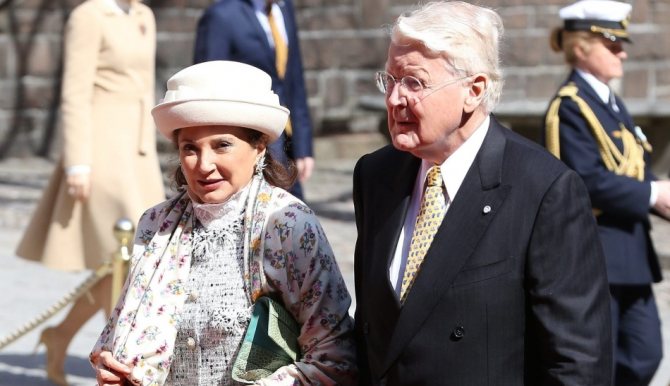
Icelandic President Olafur Ragnar Grimsson and his wife
Icelanders value comfort highly, but are indifferent to luxury. Moreover, flaunting your status and wealth is considered extremely indecent here. Even the top officials of the state have very modest offices, use almost no security services and try to make do with little.
Icelanders are very conservative and traditional. Like their pagan ancestors, they do not have surnames - only first and patronymic names. The mother's name can also serve as a patronymic - the question depends on the decision of the parents at birth. Usually, the ending “son” (son) or “dottir” (daughter) is added to the parent’s name, depending on gender. In alphabetical indexes (for example, in telephone directories), people are sorted by first name, not patronymic, which often confuses foreigners.
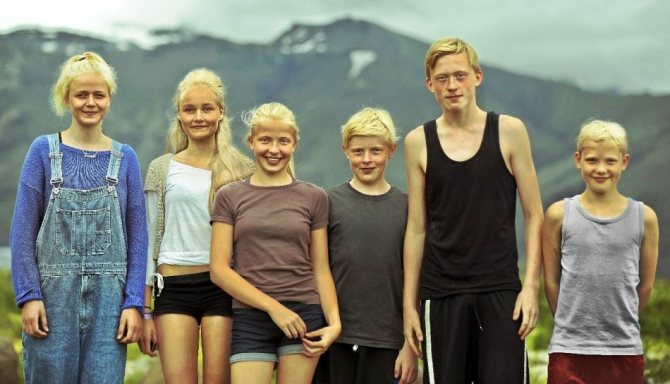
Due to the lack of surnames, members of the same family in Iceland have completely different names
The people of Iceland are conflict-free and friendly. Fights and crimes are very rare here. If necessary, any passerby can offer you help on the street. You will not find stray animals on the streets of Icelandic cities, as they have all been taken home by loving and caring citizens. The law that regulates keeping pets in Iceland prohibits letting them go outside.
Another thing that Icelanders do is not to bother others. From an early age, it is customary here to respect other people’s space, not to disturb the general harmony and to be careful about the cleanliness of public places. Before getting a pet, you will have to ask all the neighbors in the area if they would be against it and if it would cause them trouble.
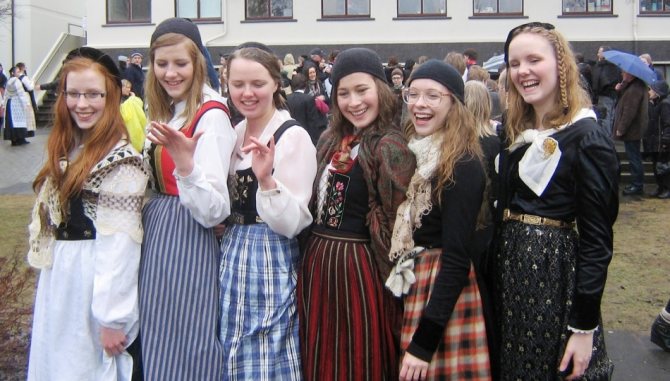
Icelandic schoolgirls in national costumes
Iceland has very unique ideas about beauty. The art here is too realistic and natural, some passages are completely difficult to explain for a Russian person. Among children's books you can find a fairy tale about poop, and at a theater performance, actors can easily urinate on stage or make love without imitation.
Iceland has a very high price level, especially for alcohol. The country is considered the most expensive in Europe and the highest in terms of living standards. It is very difficult to live here without a regular income.
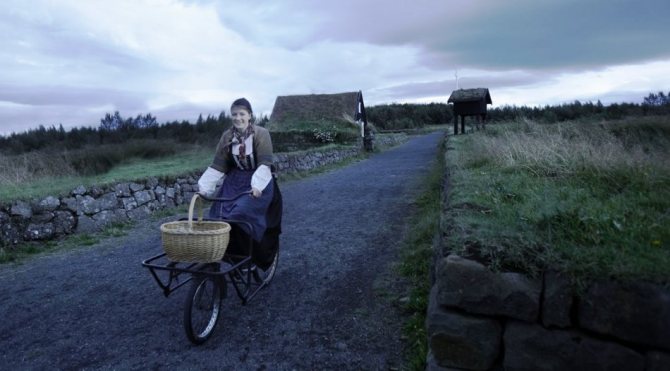
Life in the outback of Iceland
Life in Iceland for Russians
Despite the geographical remoteness, the mentality in Iceland is close to Russian in many respects. Therefore, adaptation to Iceland is easier for our people than for residents of Southern Europe or refugees from African countries.
What in Iceland will seem familiar to a Russian immigrant.
Icelanders are just as hard-working. They are not used to sitting idly by; the difficult climate (just like ours in Russia) from time immemorial forces them to work hard before getting results. Therefore, in Iceland, hard workers are highly valued and respected and loafers are despised. It’s easier for Russians, with their love of work, to become “one of our own” here
Icelandic people are very close-oriented. The main value of any Icelander is family, parents and close circle of friends. Moreover, in friendship, Icelanders are as selfless as Russians: they will share the last piece of bread. Their basic ideas about friendship and marriage largely coincide with ours.
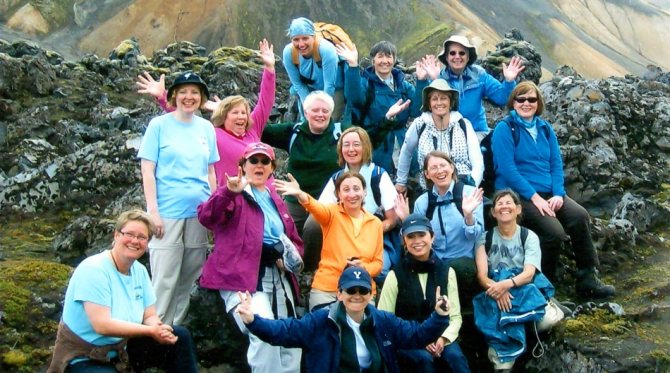
Relatives and friends are very important to the people of Iceland.
For an Icelander, as for a Russian, the opinions of others and the boundaries of decency are very important. Good relations with neighbors, relatives, and former colleagues are very important for an Icelander, as is the expression “what people will say.” Especially when you consider that there are only 300 thousand inhabitants on the island and almost everyone knows each other, certainly in their own city.
Icelanders love and know how to have fun, but in a small circle. Noisy family holidays are not uncommon here. They do not shy away from alcoholic beverages and can drink quite a lot. They often fool around, but don’t go overboard.
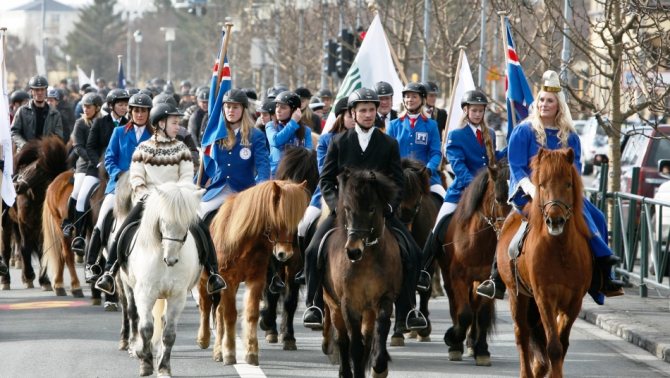
Icelanders love holidays and parades
DO THEY REALLY PAY 5000 EUROS PER MONTH FOR MARRIAGE IN ICELAND?
– I say again, they pay not for marriage, but for the fact that you live in Iceland - you receive social assistance. In principle, there are no poor people here, and the amount of 5,000 euros just covers current expenses. Regarding the beauty of local girls, everything here is the same as everywhere else. Some are beautiful, and some are not so good. The only difference is that here girls are taught from childhood to take care of themselves - a gym, a cosmetologist, beauty salons - here this is not a luxury, but the minimum that every girl regularly allows herself.
- Not really for marriage. It's all about unemployment assistance and helping young families. But marriage is an important factor for both of these payments, because on the basis of marriage with a native Icelandic woman, you can obtain a residence permit in this country, and in the future, citizenship. As a result, it turns out to be even more than 5,000 euros per month.
Work in Iceland for Russians
In what industries can Russian immigrants find work in Iceland?
- Sports and everything connected with it. Icelanders are obsessed with a healthy lifestyle. Almost everyone regularly visits the gym, there are many sports clubs and centers. Good trainers, massage therapists, and fitness consultants are always in demand here
- It-technologies . Russian programmers and technicians are some of the best in the world, and in Iceland much of the manufacturing and service sector is technology-based

IT specialists are in demand in Iceland
- Engineering specialties , especially narrow ones. The Russian Lefty is in each of us, so natural talent and ingenuity allow Russians to achieve serious career heights in such areas
- Ecology, nature and everything connected with it. Iceland is a country of volcanoes and crazy beauty. Volcanoes are avoided here, so seismologists and geologists are in great demand. And nature is pampered and cherished, so biologists and other naturalists will be at the court.
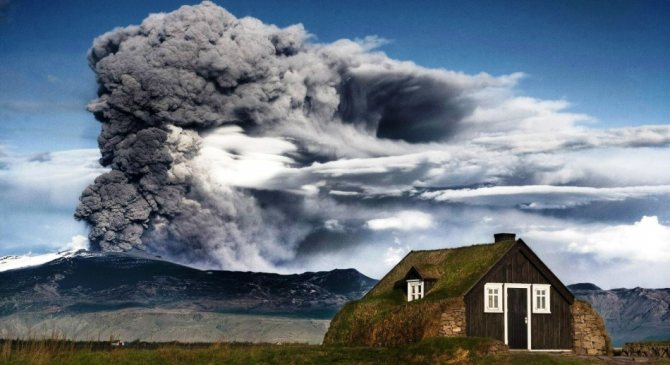
Because of the abundance of volcanoes, immigrant seismologists will be welcome in Iceland
- Agriculture . Recently, in Iceland, the authorities have become concerned with the problem of dying villages and agriculture, as citizens are actively moving to cities. It is planned to introduce special privilege programs for immigrants who are ready to revive the outback
- Tourism . Icelanders are making a lot of efforts to develop this industry and attract as many tourists as possible; the scope of tourism services is constantly expanding. To work with foreigners, it is important to understand the mentality of visiting guests, which is why Icelandic travel agencies often hire foreigners
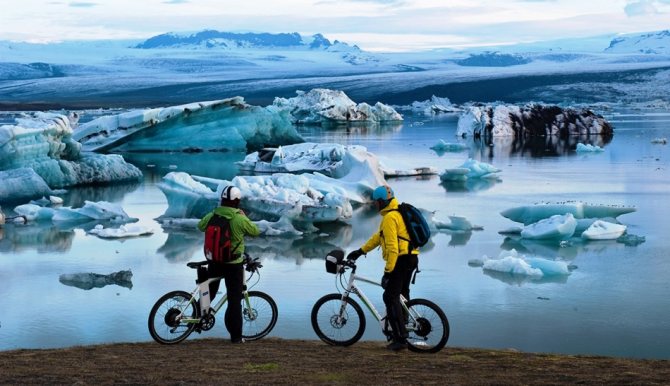
Tourism is actively developing in Iceland
- Services are only those that an Icelander cannot handle on his own. For example, Icelandic residents are not willing to outsource minor repairs to their apartment or manicures. But they will be happy to pay for the repair of complex equipment or procedures that require serious skills.
Foreigners in creative professions have the least chance of getting a decent job in Iceland. The Scandinavian culture is quite specific. Many consider creative professions to be a frivolous matter and engage in them as a hobby. And especially not very willing to pay for it.
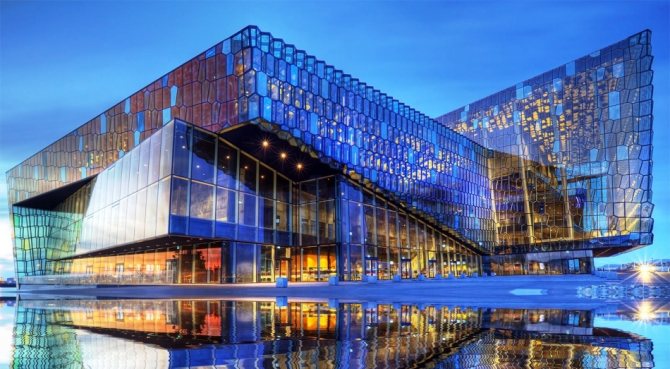
Concert hall building in Reykjavik, Iceland
Grounds for obtaining a residence permit
A Russian citizen acquires a residence permit and, over time, permanent residence in the country in the same way as a native of any other state. The harsh local climate is not a burden for a citizen of the Russian Federation. There are several reasons for registering. This:
- employment;
- studying at an Icelandic university;
- family reunification;
- business immigration;
- force majeure circumstances threatening life, rights and freedom;
- grant programs for studying the state language;
- participation in international humanitarian missions.
By searching for “how to move to Iceland in 2021,” some people find articles about supposed assistance and financial support in the amount of 5,000 euros for the suitors of local young ladies. Such information cannot be trusted: it is a fake, which the Ministry of Foreign Affairs and the Embassy of the country categorically and repeatedly deny. However, the desire to marry locals reduces the wait for citizenship to three years from seven.
Work in the country
Visitors are attracted by the high salaries in Iceland. But it is important to understand: first of all, all vacancies are applied for by representatives of the local population, then - of EU member countries, and last of all, the desired job in Iceland will be offered to immigrants. In other words, the vacancy is checked within a month and will go to the applicant only if there are no other applicants.
As a rule, the places available are:
- in the fishing industry;
- in the processing industry;
- in aviation;
- in the development of biological and energy efficient technologies.
Foreign companies operating in Iceland will be glad to see young promising IT workers - the opportunity to develop a competent employee from an inexpensive workforce, gradually increasing his salary, can be a beneficial solution for both parties.
Getting an education
Even at the beginning of the twentieth century, education was home-based consulting, and universities were something foreign. Nowadays, one of the best school systems in Europe has been developed within the country, with seven of its own universities: 4 public and 3 private.
Training is conducted in Icelandic, Danish and English. The latter is very convenient for foreign students. The price of education is the same and affordable everywhere - it is 300 euros per year (more expensive only at the University of Reykjavik). There are no scholarships, but thanks to the grant system and the possibility of loans (including for studying Icelandic for foreigners), these universities attract foreign applicants.
Another convenience for visitors is the semester application form. It is filled out at the end of the six-month period and an application is submitted to continue the course (in this case, payment is made within 30 days) or to take a break.
Anyone who has issued a student residence permit can study, indicating the source of funding for the planned period of study in Iceland in full, providing documents on previous education. If the university gives a positive answer, then the following steps should be taken:
- Pay the registration fee within a month (for the first year of study).
- Immediately send the entire package of documents to the Immigration Bureau.
There the final decision will be made on issues relating to the applicant.
Purchasing a home

In this regard, Iceland remains an expensive country, although some favorable changes have emerged. You can rent a studio here for prices ranging from 200 to 700 euros per month. Three-room apartment - from 700 to 1200.
Those who are interested in emigrating from Russia to Iceland in the future are thinking about buying real estate. It is worth noting that a square meter in a city high-rise building will cost from 1,100 to 2,000 euros.
Villas and townhouses belong to expensive real estate, the prices of which are constantly changing. However, if the transaction amount is above 100,000 euros, then the foreigner is entitled to a bank loan.
All transactions for the purchase or rental of houses and apartments are carried out through realtors, and are paid in the local currency - the crown at the current exchange rate.
When is the best time to go to Iceland?
Before making a final decision about immigrating to Iceland, it is important to make sure that you have weighed the pros and cons, have a good idea of your future place of life and the mentality of your future neighbors.
It is worth going on a tourist trip to Iceland to be sure of the right choice.
In Iceland, there is a pronounced seasonality in the influx of visitors, with the peak being between June and September. At this time of year, here are the most comfortable conditions for relaxation: warmth, a lot of greenery, plenty of opportunities for ecotourism and sightseeing excursions.
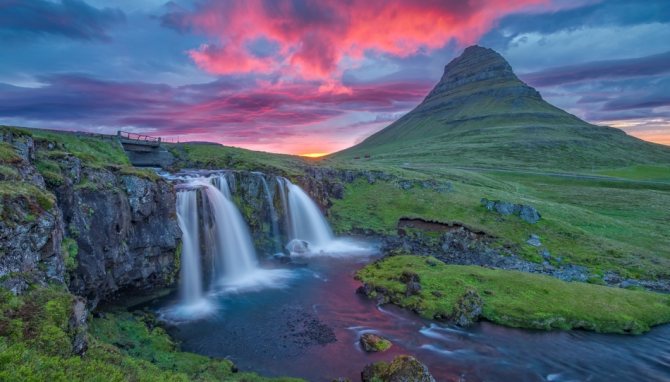
Summer in Iceland
In the summer, many airlines organize additional flights to Iceland - it will be easier to find a convenient option to get there. But prices here skyrocket in the summer.
In winter, the situation is the opposite: the weather conditions are not the most comfortable, and in some places it is difficult to travel around the country (snow drifts and hurricanes are frequent), but prices drop to 30-40% and you can fit your trip into a relatively reasonable budget.
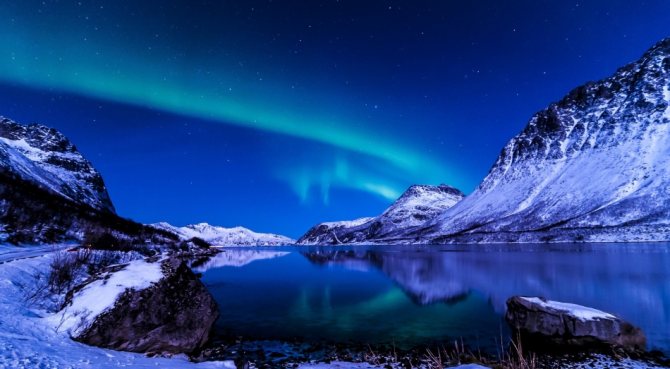
Iceland in winter
According to suitcases
Immigration to Iceland through the purchase of real estate is not very realistic, since the purchase of real estate in the country does not give the right to a residence permit. But if you combine this method with any other, the chances of getting a residence permit will increase - so, a business immigrant with his own real estate has a non-zero chance of getting the coveted residence permit. The procedure for purchasing Icelandic real estate is not complicated - realtors will do everything, and the immigrant will only need to sign the necessary papers. You just have to keep in mind that foreign citizens cannot buy land, as in many other countries - they can only take it on a long-term lease. Also, when purchasing their first property, an immigrant can take out a mortgage loan from an Icelandic bank without additional fees, however, only if the estimated value of the purchased property exceeds the equivalent of one hundred thousand euros.
Iceland is a small but very prosperous country located far in the north. For many years now, it has been firmly at the top of the list of the most prosperous and most pleasant countries to live in, so settling there legally is not so easy. However, immigration to Iceland can be a big step along the road that will ultimately lead the emigrant to prosperity. There are several ways to immigrate to this country.
We recommend reading: Lease Agreement with an Individual Sample Apartment
Iceland, natural attractions
- Fishing in Iceland is one of the most exciting activities. The warm Gulf Stream brings schools of various fish here; even novice fishermen can boast of very impressive trophies. Fishing is possible all year round, it all depends on weather conditions
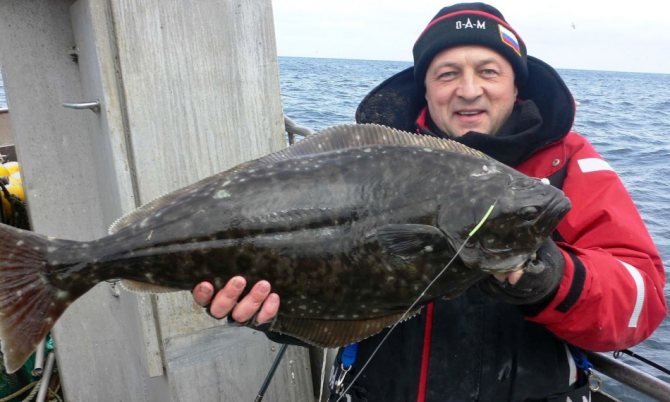
Sea fishing in Iceland
- Humpback whale watching . On the open sea, these beauties make an incredible impression. Special excursions to whale habitats are an integral part of a trip to Iceland
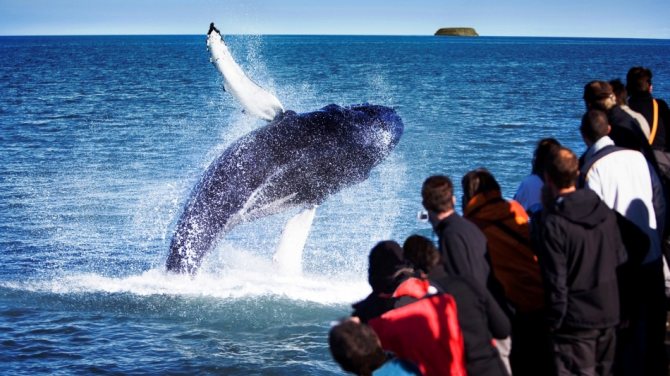
Humpback whales in Iceland
- Sea cruises to nearby islands or to Greenland in the north will also give you an unforgettable experience. Walk along the edge of the Arctic Circle, see endless glaciers and miraculously nestled houses on rocky shores - you will not find such landscapes in warmer latitudes
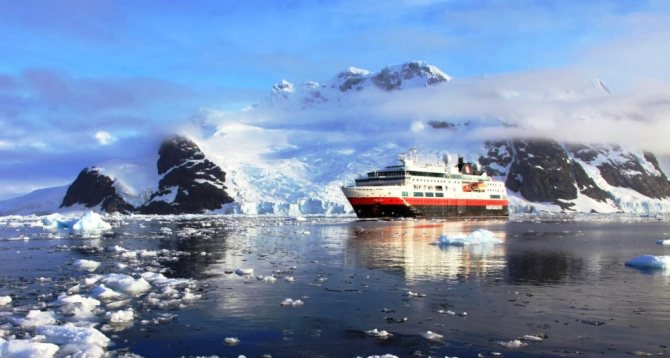
Sea cruises in Iceland
- Swimming in open thermal springs . The residents of Iceland themselves often treat themselves to such procedures even in January. Hot springs are found everywhere in Iceland; the temperature in them is on average 35-36 degrees Celsius, so swimming in them will be comfortable even at sub-zero temperatures. In addition, the mineral composition of the water in the springs has very healing properties.
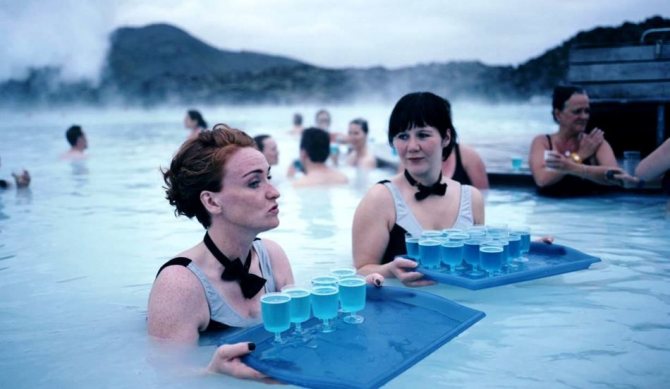
Thermal springs of Iceland
- Polar Lights . This amazing spectacle can be seen in Iceland from autumn to spring. In winter, there is a greater chance of seeing flashes in the sky, since in polar Iceland the daylight hours in winter last only a few hours. Special tours are called “Hunting for the Northern Lights”
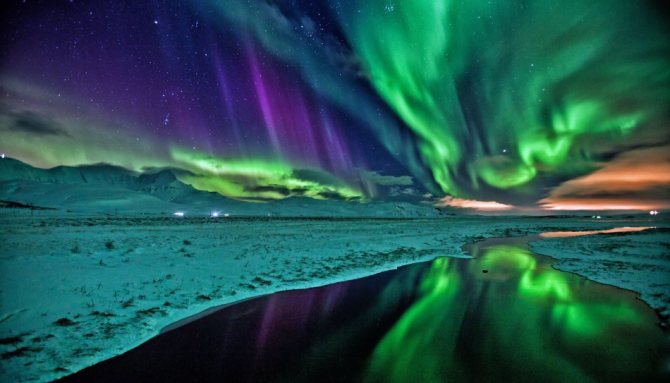
Aurora in Iceland
- Geyser observation . Geysers are large and small hot springs that bubble up underground. Sometimes they break out, frightening unprepared spectators with their suddenness. Iceland's most famous geyser is called Strokkur.
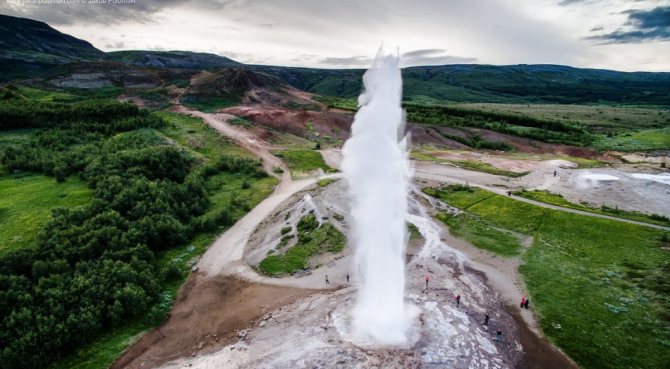
Geyser in Iceland
- Waterfalls in Iceland - there are, perhaps, no less of them here than there are natural lakes and geysers. Each waterfall has its own character and unique charm. Icelanders give every waterfall, even a tiny one, its own name and leave a lot of gratitude for it on their pages on social networks
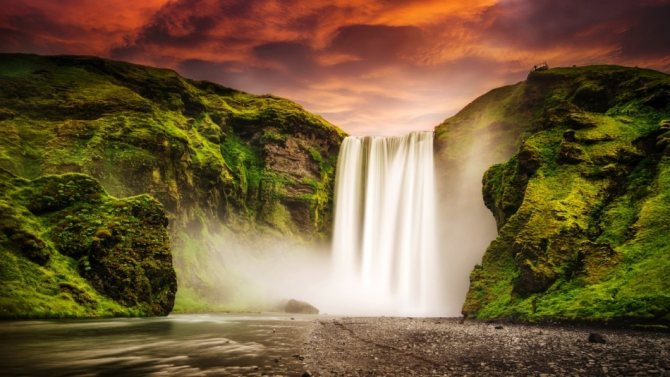
Skogafjos waterfall in Iceland
Read about the cultural attractions of Iceland here.
Black Beach Iceland
Black Beach on the coast of Reynisfjara is probably the most mystical natural attraction in Iceland. It stretches for several kilometers and produces a real shock for those who come here for the first time.
Imagine crystal clear white waves on jet black and perfectly smooth sand. Let’s add here a frame of gloomy rocks, fragments of some of them stick out from the water like ominous peaks, and the frequent fogs here make the picture terribly blurry. In general, the ideal setting for a film about vampires or other evil spirits from the Scandinavian sagas.
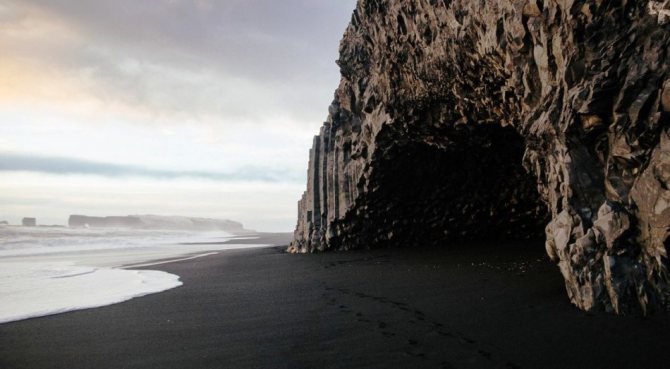
Reynisfjara beach, Iceland
By the way, the protruding rocks are, according to legend, petrified trolls whose ship crashed nearby.
The unusual black color is given to the sand by volcanic rock, and its purity and perfect surface have been preserved due to the fact that the beach is located in a cold, rainy area that is not very attractive for human and animal life.
Reynisfjara Beach is one of the TOP 10 best beaches in the world, and filmmakers often come here to shoot unearthly landscapes.
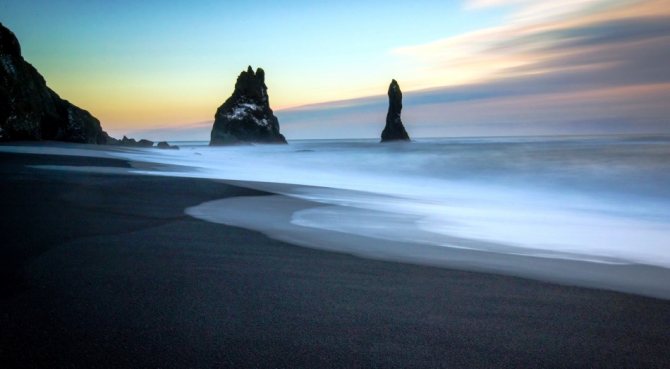
Black Beach in Iceland
Icelandic traditions
In conservative Iceland, the traditions of distant ancestors are carefully respected. This is the only country in the world where the language has not changed for a thousand years, so the inhabitants of Iceland perfectly understand the texts of the Old Norse sagas without a translator. Also, various pagan holidays and customs are in use here, in contrast to the Christianized rest of Europe.
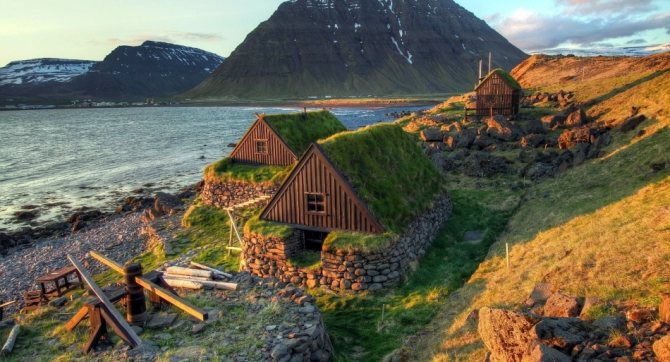
Traditional houses in Iceland
Traditional songs of Iceland
Icelandic folk songs are a real challenge for the unaccustomed listener. These songs are very drawn-out, ornate, with a lot of text, since each song is a saga set to music (and Viking sagas are never short). In addition, the performer must highlight particularly tragic moments with his voice, so that listeners flinch in places and blink frequently
Traditional clothing of Iceland
Lopapeysa is a warm knitted sheep wool sweater decorated with national ornaments. In addition to piercing cold winds, lopapeysa also protects from moisture, so it is often used instead of a jacket in damp and cool summer weather
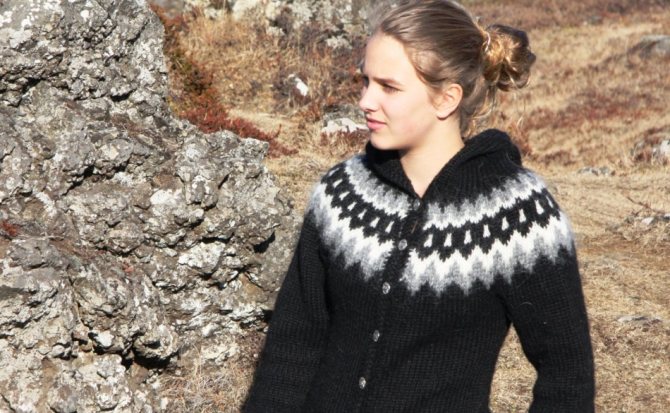
Lopapeysa - traditional clothing of Iceland
Traditional Icelandic cuisine
The main dishes on the Icelandic table are fish of all types and methods of preparation. The most exotic dish, “haukarl,” is shark meat, which is first buried in the ground, where it rots for some time, then hung in a smokehouse, and only then eaten (frankly, a completely inedible thing for tourists).
The second most popular product is lamb, since sheep are the only livestock that have taken root in the Icelandic climate. Among the exotic ones, one can highlight “khrutspngur” (pickled sheep eggs) and “slatur” (sheep offal, boiled in its own stomach pouch).
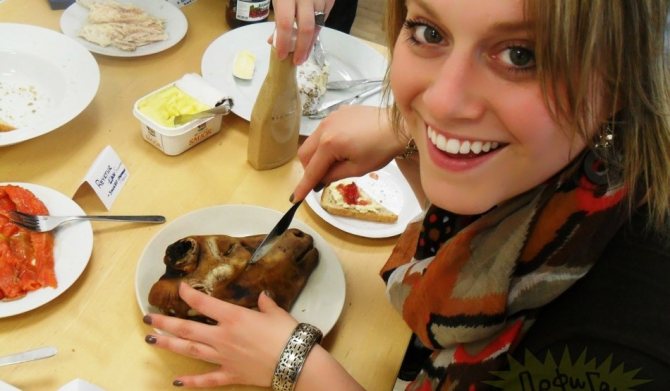
Roasted sheep's head is a traditional dish in Iceland.
Traditional superstitions of Iceland
You will laugh, but in Iceland, trolls, gnomes and sorcerers are real characters, according to the overwhelming majority of the adult population. Before starting construction or laying a road, Icelanders seriously consult with local shamans for “permission”.
Well, that is, if you pave a road through the troll’s domain, you won’t end up in trouble! They pay absolutely seriously to appease these creatures, perform strange rituals prescribed by the shaman, and generally show all respect to the local spirits.
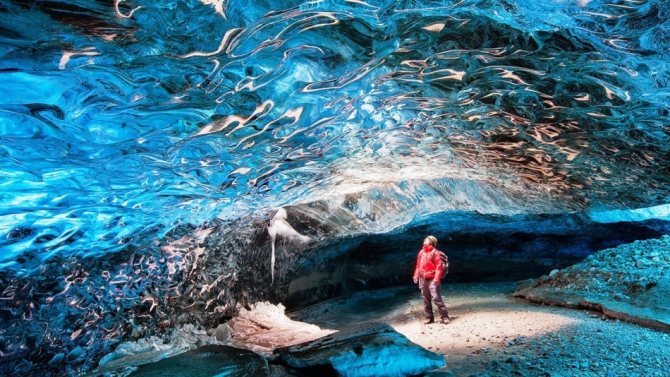
Ice cave in Iceland
Which animal is prohibited from being brought into Iceland?
You can bring any animal into Iceland (subject to veterinary certificates, of course), except horses. Yes, it was horses that were subject to the most severe ban on the import of Vikings into the country.
Of course, there are horses here, but only of one breed - Icelandic. And they cannot be crossed with any other species, as the law dictates.
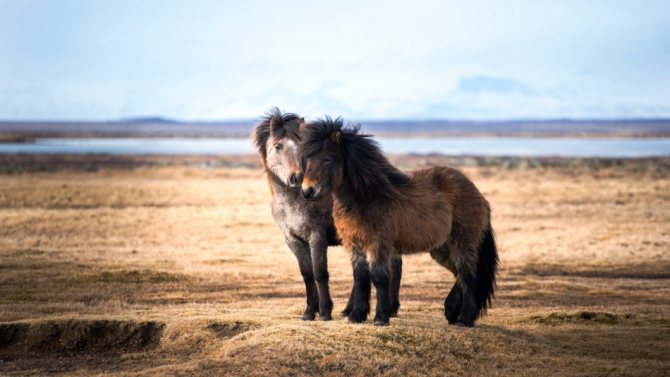
Icelandic horses
Even if for some reason you take an indigenous horse out of Iceland, they will not let you and it back under any pretext, even if you prove that the horse was born and raised on the island and cannot live without its brothers.
This ban is due to the fact that Icelandic horses, like people, have lived in isolation for hundreds of years. Any minor disease from outside, and the entire population is at risk. And the horses here are special, because not every breed can withstand the northern climate.
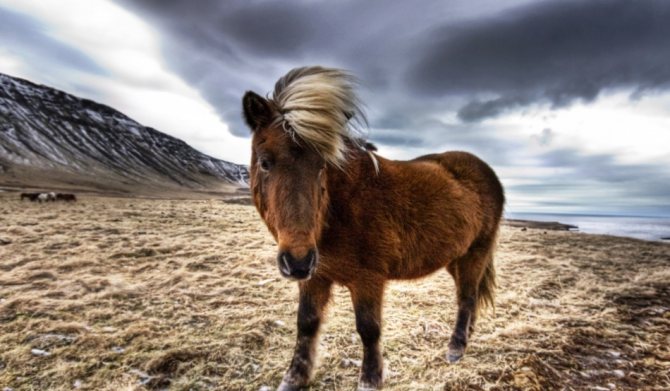
Icelandic horse breed
Even if you are not importing a horse, but riding equipment, all equipment will be thoroughly disinfected, checked for parasites, and only then allowed to cross the border.
The only time Icelanders decided to cross their horse with an Arabian horse occurred 800 years ago, but the offspring turned out to be unsuccessful and poorly adapted for life in Iceland. Since then, a ban on “spoilage” of local horses has been introduced.
Buying a home
The process of buying real estate in Iceland is not much different from other countries of the European Union. First you need to agree with the realtor, he concludes the deal without the participation of the buyer. The future owner of the property is practically not needed throughout the entire procedure.
Exceptions are points that require a signature or provision of an extract indicating the re-registration of property rights.
Then the documentation is checked to ensure the fairness of the transaction. This procedure is an ordinary formality. After purchasing a home and completing all the necessary paperwork, you need to start paying property taxes, as well as utility costs.
It is worth noting that for the purchase of real estate, if this is being done here for the first time, every citizen of a foreign country has the right to receive a loan.
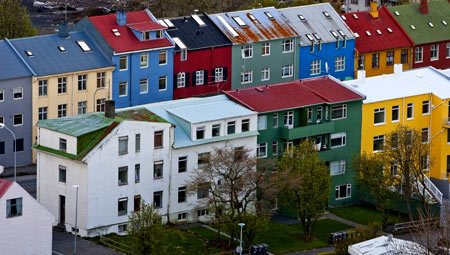
Typical apartment buildings in Iceland
It is issued by the bank. You don't even need to pay a registration fee for this. However, there is a certain condition. The loan is available if the transaction amount is 100,000 euros or more. Since this state is not a member of the European Union or EEC, it has its own national currency. This is the Icelandic krona.
Foreign citizens who have already become home owners cannot immediately apply for a residence permit. But it is worth noting that the presence of real estate significantly increases the chances of receiving it. As for land, it is not sold to citizens of another country. However, it is allowed to be rented. After three years from the date of official residence, you can submit a request for permanent residence.
